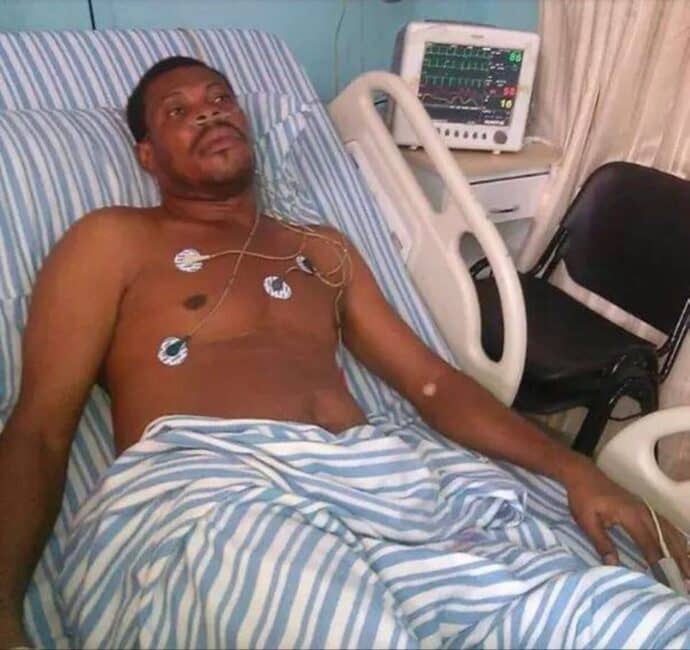Vice President Mahamudu Bawumia Thursday, commissioned the Royal Ghana Gold Refinery (RGGL), a state-of-the-art refinery, capable of refining 400 Kilogram of gold daily.
The facility, a joint venture between the Precious Minerals Marketing Company (PMMC) and Royal Gold Limited, an Indian gold firm, can produce refined gold at 24 carats with a quality rate of 99.9 percent.
The Vice President said the unveiling of the gold refinery marked a significant milestone in the government’s journey to move Ghana from mineral production to value addition.
He stated that the facility represented a strategic investment decision by the government and would further drive its vision to add value to Ghana’s mineral resources.
Dr Bawumia said that the refinery would create more than 600 direct and indirect jobs for Ghanaians.
The Vice President highlighted the features of the refinery, noting that it was an outstanding achievement for the government in job creation and revenue generation avenues.
It would also move Ghana a step closer to the dream of making the country a hub for mineral refinery.
“The establishment of this refinery is a strategic investment which contributes immensely to the Government’s efforts in ensuring value addition to our mineral resources. Currently, our country’s gold is exported in raw form and is refined outside Ghana, resulting in lost revenue, and missed opportunities for job creation. Between 2018 and 2023, Ghana’s average annual gold production was 3.92 million ounces (122.5 tonnes). All this gold was exported unrefined, resulting in lost revenue, and missed job creation opportunities.
“The refinery will offer more premium to gold exported from Ghana. Initially, it is expected to create 80 to 120 direct jobs and another 500 indirect employment opportunities, boosting domestic tax revenue in the form of corporate taxes, and enabling us to refine gold to 24 carats, 99.99% purity – the same quality as a good delivery bar (LBMA standard).
“With the ability to locally refine our gold, we will be able to sell the refined gold at its appropriate price, enabling us to retain its economic value within our borders, while creating numerous job opportunities for the youth,” he pointed out.
In addition, he said, the Government’s intention to refine all gold produced in Ghana would further enhance the country’s economic independence and resilience.
Dr. Bawumia touched on the issue of illegal mining and smuggling of gold and appealed to all stakeholders in the mining sector to work with the government to ensure that the country derives full benefit from its mineral resources.
On his part, the Minister for Lands and Natural Resources, Mr Samuel Abu Jinapor, stated that the government, right from the onset, recognized that, for Ghana to enjoy maximum benefit from its natural resources, it was imperative to engage in a paradigm shift from the archetypal method of exploiting resources to a modernized and value-addition-based to harness the resources.
Mr Jinapor stated that the Vice President had been at the forefront of the initiative, with his commitment, expertise, and knowledge proving crucial in the implementation of various policies aimed at enhancing the exploitation of resources in the country.
“The Vice President has been at the forefront of policies aimed at ensuring optimal benefits from our mineral resources and improving the livelihoods of our people, including the digitalization of the National Assay Laboratory, the Domestic Gold Purchase Programme, which has led to a tremendous increment in our gold reserves, and the Gold for Oil Programme, which has contributed over thirty percent (30%) of our total crude consumption.
“The reconstruction of the Appiatse community, which was razed down some two years ago, and the ongoing efforts at digitalizing the records of the Lands Commission to make it fit for purpose are also some of the remarkable interventions of the Vice President in the Lands and Natural Resources sector,” Mr Jinapor stated.
The Minister pointed out that the establishment of the refinery was a feather in the cap of the government’s quest to ensure that Ghana raked in maximum benefit from its natural mineral resources and also become the hub of mineral refinery in the sub-region.
“The unveiling of the facility is a great milestone that embodies our commitment to value addition, thereby realizing the vision of the Akufo-Addo/Bawumia Government to make Ghana the mining hub of Africa, where all mining and mining-related activities, from exploration to downstream production, and from research to innovation, will be centered,” he added.
He stated that the efforts to build refineries continue unabated with the construction of a $450 million manganese refinery at Nsuta in the Western Region, which would be the bedrock of the growth of the steel, aluminum, and copper industries in Ghana.
He stated that the arrival of the refinery presented a huge boost in Ghana’s quest to secure a London Bullion Market Association (LBMA) Certification to ensure that the country can trade its refined gold on the international market.
GNA







